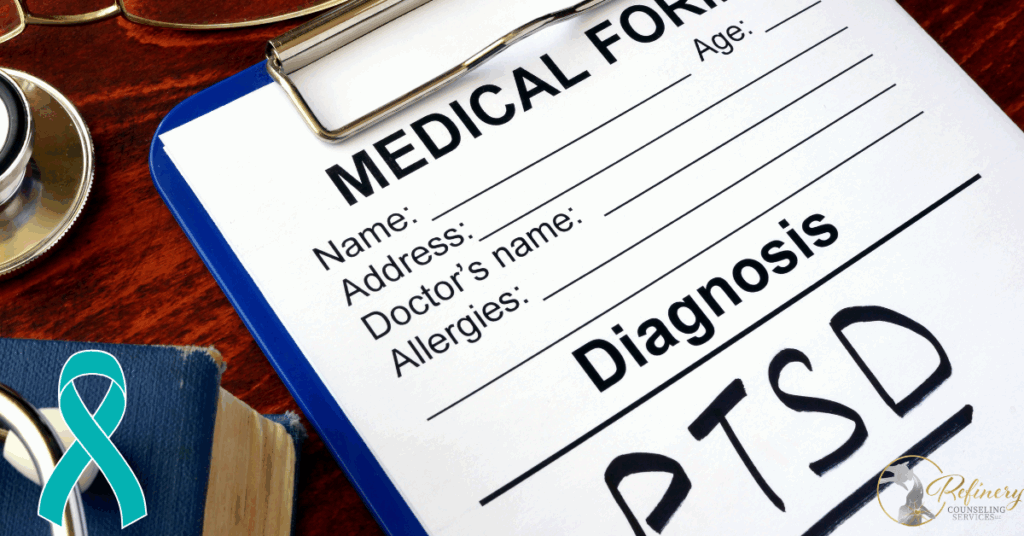Every year on June 27th, National PTSD Awareness Day serves as a critical moment to spotlight the challenges and triumphs of individuals living with post-traumatic stress disorder (PTSD). This day is more than just a date on the calendar—it is a time to pause, reflect, honor those affected by trauma, and commit to breaking the silence around mental health.
PTSD is often described as an invisible wound, one that can deeply impact emotional, psychological, and physical well-being. As awareness grows, so does the importance of education, compassion, and support for survivors. This blog will explore what PTSD is, who it affects, and how communities can come together to foster healing and resilience.
What Is PTSD?
Post-Traumatic Stress Disorder is a complex mental health condition triggered by experiencing or witnessing a traumatic event. While it is most commonly linked to military service members, PTSD is far more widespread and can affect anyone who has endured severe trauma. This includes survivors of sexual assault, domestic violence, natural disasters, serious accidents, and other life-threatening or deeply distressing events.
Common Symptoms of PTSD
PTSD symptoms can vary widely but often include:
- Intrusive memories such as flashbacks or distressing nightmares
- Avoidance of reminders related to the trauma
- Negative changes in thinking and mood, including feelings of guilt, shame, or numbness
- Heightened arousal, such as being easily startled, feeling tense, or experiencing difficulty sleeping
These symptoms can interfere with daily functioning, relationships, and overall quality of life.
The Silent Struggles of Trauma Survivors
Many people with PTSD face their struggles quietly, burdened by the stigma and misunderstandings surrounding mental health. The fear of being labeled “weak” or “unstable” can discourage individuals from seeking help, prolonging their suffering.
Men, in particular, may feel added pressure to “stay strong” and suppress emotions. This societal expectation often creates barriers to accessing mental health care, even though men are at significant risk for PTSD and related issues such as depression and substance use. Articles addressing men’s mental health highlight how fostering emotional resilience and creating safe spaces for vulnerability is essential in overcoming these barriers.
Reflecting on the Journey Toward Healing
Healing from trauma is not about erasing memories but learning to live with them in a way that allows for growth, connection, and peace. Emotional resilience—the ability to adapt and recover in the face of adversity—is a cornerstone of this process.
Building resilience involves:
- Developing coping skills such as mindfulness, relaxation techniques, and grounding exercises
- Establishing supportive relationships that provide empathy and understanding
- Engaging in self-care to nurture physical and emotional health
Support systems can make a profound difference. Connection helps combat isolation, one of the greatest challenges for those with PTSD. Discussions about the importance of social support show how meaningful connections foster safety and promote long-term mental wellness.
Honoring Survivors: Courage in Everyday Life
National PTSD Awareness Day also honors the courage of survivors who continue their healing journeys. Recovery is often nonlinear and requires immense strength. Whether attending therapy, joining support groups, or simply making it through the day, these acts are victories that deserve recognition.
Professional support, such as therapy, is invaluable. It provides survivors with a safe space to process trauma, develop healthier coping mechanisms, and rebuild trust in themselves and others. The misconception that therapy is only for crises can discourage early intervention, yet proactive mental health care leads to better outcomes and greater emotional stability.
Raising Awareness and Breaking Stigma
One of the day’s most vital goals is to raise awareness and break the stigma surrounding PTSD and mental health. When society understands the realities of trauma and its effects, it cultivates empathy and reduces discrimination.
Public education campaigns and community conversations create safer environments where survivors feel seen and supported. Moreover, awareness encourages people to seek help sooner, improving recovery rates.
How You Can Help Raise Awareness
- Educate yourself and others: Learning about PTSD dispels myths and promotes understanding.
- Speak openly about mental health: Sharing your own experiences or supporting others reduces isolation.
- Advocate for accessible mental health resources: Support policies and programs that provide trauma-informed care.
Supporting Mental Health Beyond June 27th
While National PTSD Awareness Day is a focused moment, supporting trauma survivors is a year-round commitment. Communities, workplaces, schools, and families all play a role in creating environments where mental health is prioritized.
Encouraging self-care, promoting therapy, and normalizing conversations about emotional well-being contribute to a culture of healing. Integrating insights from posts on stress management, emotional resilience, and men’s mental health can enrich these efforts.
Tools and Resources for Trauma Survivors
If you or a loved one is dealing with PTSD, know that help is available. Here are some tools and resources that can make a difference:
- Therapy: Professional counseling, including trauma-focused therapies like EMDR and CBT, has proven effectiveness.
- Support groups: Peer-led groups offer connection and shared understanding.
- Self-care practices: Mindfulness, exercise, journaling, and creative expression support emotional regulation.
- Crisis resources: Hotlines and emergency services provide immediate help during overwhelming moments.
Exploring self-care routines tailored to individual needs can improve daily functioning and emotional balance. Mental health at work and managing stress through boundaries are also important facets for those balancing PTSD with everyday responsibilities.
Final Thoughts: A Day to Remember and Act
National PTSD Awareness Day invites everyone to reflect deeply on the realities of trauma and the strength of those who endure it. It calls on communities to honor survivors with empathy and to raise collective awareness that fosters healing and reduces stigma.
By embracing education, connection, and compassion, we can help rewrite the narrative around PTSD—one where survivors are met with understanding, supported with effective care, and empowered to thrive.
As awareness grows, so does hope. Together, we can ensure that no one faces the silent struggles of trauma alone.

